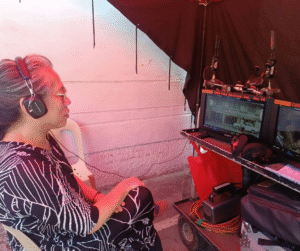Danna Quinto
Hi! I’m Danna Quinto, a Philippine born-and-bred kababayan (fellow countryman or countrywoman), and a practising lawyer in the UK. I specialise in civil litigation (all non-criminal disputes, as for example debt claims, tenancy law, employment law, personal injury) as well as family law (divorce and children matters).
Through this column, I hope we can help our Filipino kababayans and non-kababayans alike understand the legal landscape in the UK so they can avoid legal issues (if at all possible!), empowering them in the process. I also hope that the column serves as a general guide or a road map should those legal issues arise.
Here are a few housekeeping notes as this is our pilot article. I may at times use hypothetical cases – these are purely imagined situations and do not refer to specific persons in the community. The intention is to educate and give general guidance, and not to “marites” (Filipino slang for gossip).
If you have a particular legal issue, it is always best to get specific legal advice from a solicitor. Each case will turn on its facts. I routinely give free 30-minute consultations, and I believe other lawyers do too – so please do seek legal advice if you have a live legal case.
Finally, please take note that the law is not stagnant. What was “good law” last year may not necessarily be good law anymore this year. Why not subscribe to our newsletter where you will find the latest advice and news for the community? Follow, like, share, screenshot, and come back after a month. This will be a monthly “column/classroom”. I will be checking attendance – well, probably on Facebook.
Without further ado, as they say, charity begins at home, so we will begin our topic with “home” – in particular tenancy of those homes. Tenancy is a UK term for your rental agreement with your landlord. Below are useful tips about tenancy agreements or assured shorthold tenancies.
1) Check your tenancy contract
A tenancy can be verbal – but it is better to be in writing, so everyone is clear on their obligations. Your tenancy agreement includes specific provisions relating to each party’s obligations and any specific restrictions to the property – for example, whether you are allowed to keep a pet.
Read your tenancy agreement before signing it– make sure that this is in line with what you agreed during negotiations. Specifically, look for the initial fixed period to which you are bound. There could be a break clause but this is unusual. A break clause would allow you to exit the contract early but may depend on the conditions noted.
2) Be careful when being joint tenants with friends
It is not unusual for friends or relatives to rent a house together as co-tenants. As a hypothetical case, friends Ana, Maria, Juan, and Juana agreed to rent a property and signed the tenancy agreement together jointly for six months. This means they are all bound jointly and severally to pay the rent for the duration of the contract.
Say, for example, the rent is £1600 a month. Juana decided to move out in the second month. The landlord still expects £1600 per month and all four (Ana, Maria, Juan, and Juana) are liable for any rental deficit until they have properly terminated the contract. The landlord can sue any of the four or all of the four tenants for unpaid rent. This is what the legal term “jointly and severally liable” means.
My advice: consider carefully the risk of being joint tenants with your friends or relatives before entering into one. If indeed you find yourself in this situation, it is worth talking to the landlord first as well as your co-tenants to try to vary the contract to allow a new tenant in. It is up to the landlord whether s/he will agree to this.
3) Know your obligation as a guarantor
At times, landlords require a guarantor. You often hear about university students renting together and parents being asked to be the guarantor. Using our case study above, for example, Ana’s mother Antonia has been asked to be the guarantor of the four tenants. It means that if any of those four (not necessarily just Ana) fails to pay their rent, then the landlord will consider Antonia to be liable. The landlord will ask Antonia to pay the rent. This guarantor obligation is in place until the contract has ended and until arrears or any payment obligation of all the tenants has been satisfied. Being a guarantor means a very serious responsibility so consider thoroughly before agreeing to be one.
4) Protection of rental deposit
Your landlord must put your deposit into a government-approved Tenancy Deposit Scheme within 30 days of receiving the deposit, and tell you exactly where it is being protected. If your landlord uses an agent, the agent is responsible for: protecting the deposit within 14 days and giving you specific written information within 28 days. If your landlord or landlord’s agent fails to follow this requirement, your landlord will be liable to you for a financial penalty of up to three times the deposit.
5) Attend check-in and check-out appointments
There is usually a “check-in” before you start the tenancy – this means that the state of the home and the facilities are being checked by the landlord or landlord’s agent. I recommend that you attend this check-in appointment and take note of any disrepair.
At the end of the tenancy, there will be a “check-out” process as the tenant would be liable for any disrepair caused by the tenant during their residency. However, the landlord cannot make the tenant liable for reasonable wear and tear.
6) Inform your landlord about needed repairs
Your landlord is required by law to repair the structure and exterior of your home as well as basins, shower facilities, toilets, pipework, water and gas pipes, electrical wiring, radiators, boiler, heating facilities. This repair obligation is imposed by law and no one can remove this by agreement.
The landlord will only be liable to repair if they know there is a problem – we call this the notice requirement. Please inform your landlord in writing if there are any repair requirements so you can evidence that you have notified and triggered the repair obligation. Do not just notify your landlord verbally.
7) You cannot be evicted without a court order
You cannot be forcibly removed from your rented home by your landlord (or anyone else) without a court order. Your landlord is not allowed by law to change the lock unless s/he has a possession order and unless a bailiff has been instructed by the court to obtain possession of the property after a court order is obtained.
If you have any legal queries or wish for me to discuss a specific topic, please email me at danna.quinto@dvsolicitors.com. As our website name suggests, your voice is important and we will respond to your queries.
About the author

Danna Quinto, a proud Ilongga from Southern Mindanao, is a practising lawyer in the UK and the current Managing Partner of Deo Volente Solicitors. Danna has been a fully qualified solicitor for over 9 years and currently specialises in civil litigation and family law. She is a keen hillwalker, a novice rock-climber, and an endurance event enthusiast – perhaps to balance her quintessentially Filipino love for cooking and eating!













